Europe
From the fall of Napoleon to Revolution in Russia and from the rise of Hitler to the fall of the Berlin Wall this period is one of major upheaval in Europe. We see the collapse of monarchies and empires and the changing status of women and working men. This is a time that witnesses the mass displacement of peoples and genocide on a scale never seen before it is also a time that sees changes in medicine and technology that make fundamental changes to our everyday lives. Read more
Sort by:
Date (Newest first) | Title A-Z
Show:
All |
Articles |
Podcasts |
Multipage Articles
-

Real Lives: Surviving the War in the Soviet Union: recollections of a child deportee
ArticleClick to view -

History Abridged: The Berlin Conference 1884–1885
ArticleClick to view -
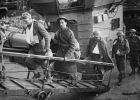
Why was it so important to see Dunkirk as a triumph rather than a disaster in 1940?
ArticleClick to view -

German universities under the Nazis
ArticleClick to view -
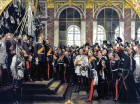
Blood and Iron: the violent birth of modern Germany
ArticleClick to view -
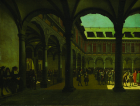
Origins of the European financial markets
ArticleClick to view -
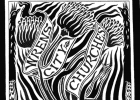
Architecture within the reach of all
ArticleClick to view -

On Black Lives Matter
ArticleClick to view -

Exploring Twentieth-Century History
ArticleClick to view -

How is the source base of the twentieth century different from that of earlier periods?
ArticleClick to view -

What is interesting about the Cold War?
ArticleClick to view -

Immigration and the making of British food
ArticleClick to view -

Migration into the UK in the early twenty-first century
ArticleClick to view -

When was the post-war?
ArticleClick to view -

What is interesting about the interwar period?
ArticleClick to view -

What is interesting about the world wars?
ArticleClick to view -

British-Army camp followers in the Peninsular War
ArticleClick to view -
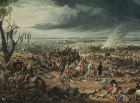
Losing sight of the glory: five centuries of combat surgery
ArticleClick to view -

The changing shapes of Europe’s twentieth century
ArticleClick to view -

Podcast: German Jews and the First World War
ArticleClick to view

